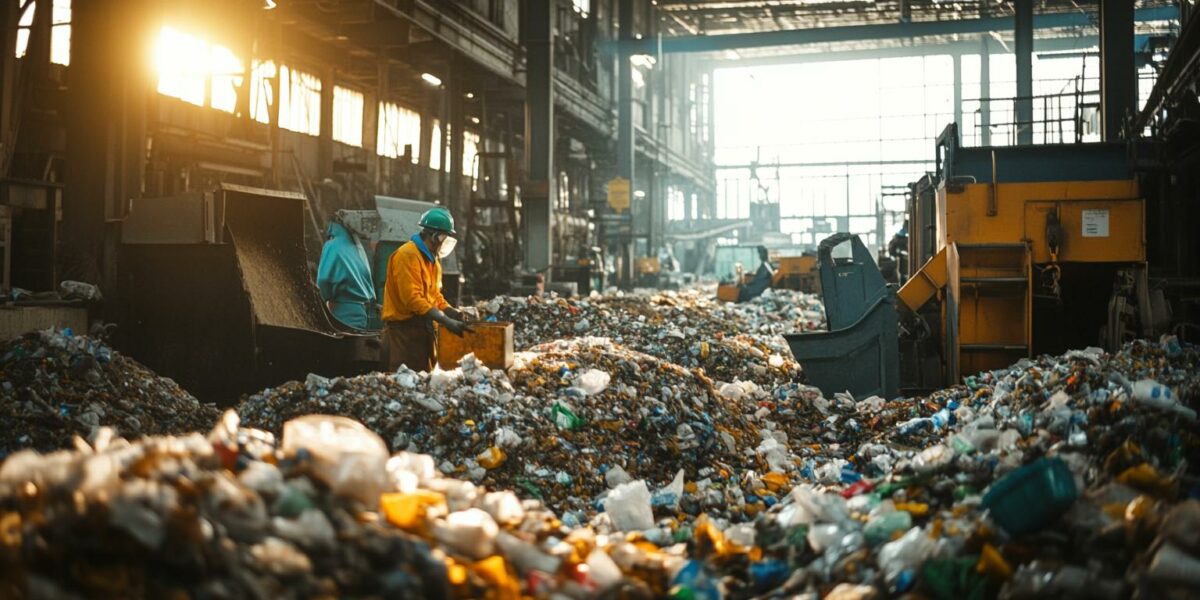Massachusetts Leads the Way in Food Waste Management
Massachusetts has positioned itself as a pioneer in tackling food waste, a significant contributor to climate change. The state has implemented robust regulations that have proven effective, according to a groundbreaking study published in the journal Science.
The Massachusetts Department of Environmental Protection (MassDEP) Commissioner, Bonnie Heiple, expressed pride in the state’s achievements. “This has been a long time coming,” she remarked, highlighting the state’s commitment to environmental sustainability.
In the U.S., about 35% of food produced is never consumed, leading to significant methane emissions from landfills. Massachusetts’ efforts to reduce this waste have had a remarkable impact on lowering greenhouse gas emissions.
Massachusetts was among the first states to introduce food waste regulations, and it remains the only state where these rules have successfully curbed food waste. This achievement underscores the importance of stringent and well-enforced environmental policies.
Effective Policies and Their Impact
Massachusetts’ initial food waste ban, enacted a decade ago, targeted businesses producing over a ton of food waste weekly, requiring them to divert this waste from landfills to compost facilities or anaerobic digesters. In 2022, the state tightened these regulations, lowering the threshold to half a ton per week.
Researchers studied data from 2006-2018 and found that only Massachusetts saw a significant reduction—about 7%—in food waste sent to landfills and incinerators. This success highlights the efficiency of the state’s regulations compared to other states.
Key reasons for Massachusetts’ success include:
- Simple and clear regulations
- Affordable waste management options
- Strong enforcement and monitoring
These factors have enabled Massachusetts to increase its food waste diversion from 100,000 tons in 2014 to about 380,000 tons per year, significantly reducing methane emissions.
Challenges and Future Goals
Despite these successes, environmental groups urge Massachusetts to intensify its efforts. A 2024 report from advocacy groups highlighted that the state fell 20% short of its 2020 food waste diversion goal, emphasizing the need for enhanced strategies to meet future targets.
To achieve its ambitious 2030 goal of diverting 780,000 tons of food waste annually, the state must double its current rate of organic waste diversion. This will require increased public education, tax incentives for food donation, and renewed investments in composting.
MassDEP’s John Fischer acknowledged the challenges ahead, stating that the state’s 2030 goal is “aggressive.” He emphasized the need to focus more on residential food waste diversion in the coming years.
Massachusetts is at a critical juncture, with regulators starting to shift their focus from commercial to residential food waste. This pivot is essential for achieving the state’s long-term environmental goals.
Community and Environmental Impact
Massachusetts’ efforts to reduce food waste have had a profound impact on both the environment and the community. By diverting food waste from landfills, the state has significantly lowered its methane emissions, contributing to the fight against climate change.
Community involvement has played a crucial role in these efforts. Local businesses, charities, and food recovery services have collaborated to ensure that edible surplus food reaches those in need rather than ending up in landfills.
Educational initiatives have also been key to the state’s success. By raising awareness about the importance of food waste reduction, Massachusetts has fostered a culture of environmental responsibility among its residents.
As the state continues to innovate and implement effective food waste management strategies, it serves as a model for other states and countries striving to address this critical issue. Massachusetts’ journey demonstrates that with the right policies and community support, significant progress can be made in reducing food waste and protecting the environment.



Sophia2
Massachusetts is setting a great example, but what are the next steps to keep this momentum going?
JosiahHarmony4
Way to go! It’s about time we see some real action on food waste 😊
skylar
Interesting read! I wonder if this will also help reduce food prices in the state?
sofiaillumination2
Does anyone know if there are any tax incentives involved for businesses?
max
Bravo Massachusetts! Let’s hope other states take note and implement similar measures.
emma
Impressive results, but what about the residential sector? That seems like a big challenge.
easton
How did they manage to get businesses on board with these regulations?
Bailey
Great job, Massachusetts! More states should follow your lead 👍
Connor1
Is this really sustainable in the long run, though?
Ginger8
Wow, go Massachusetts! How can other states replicate this success?